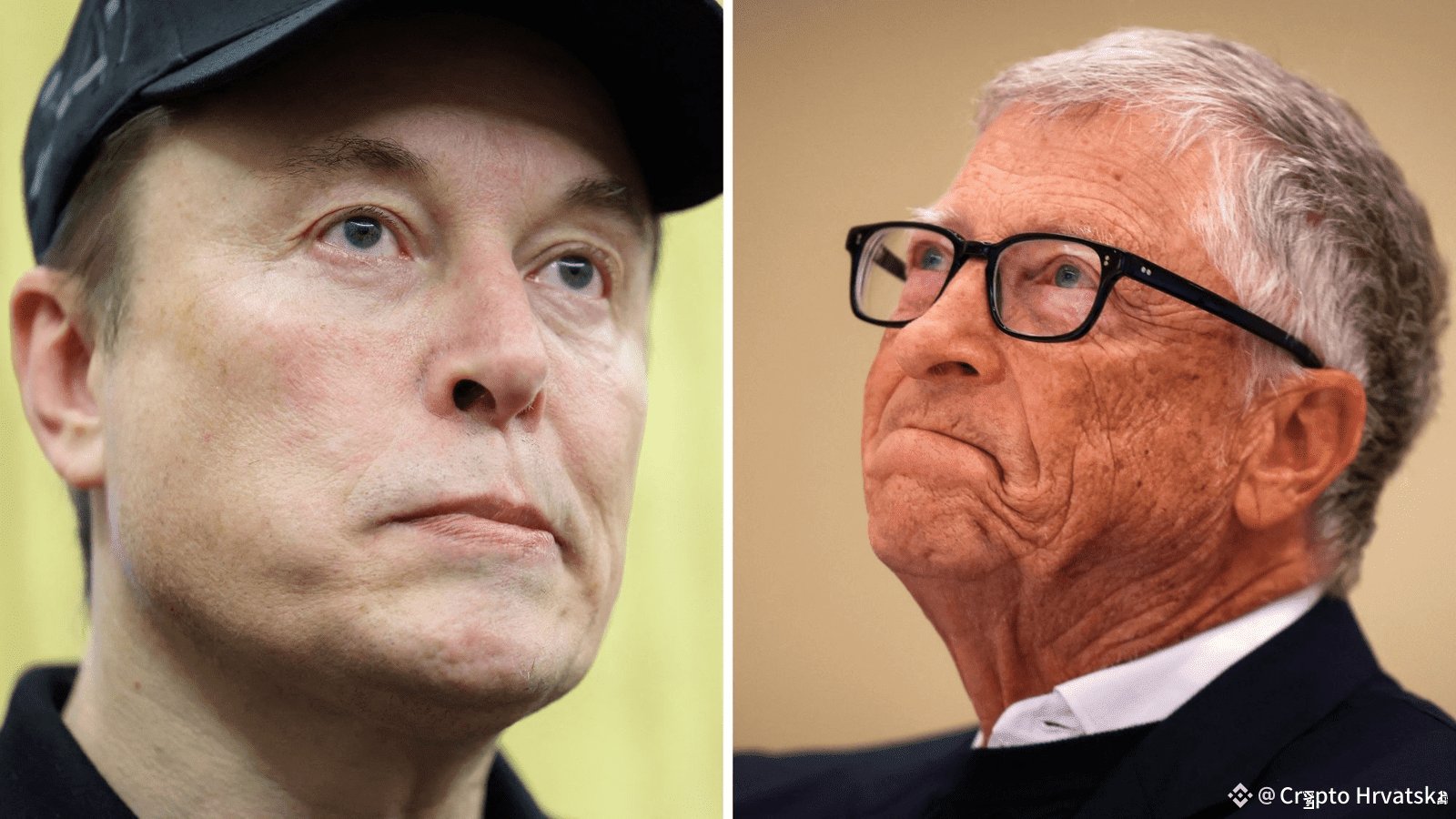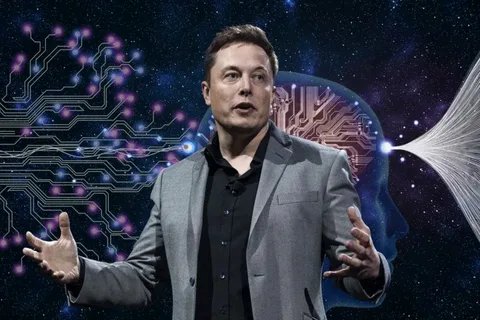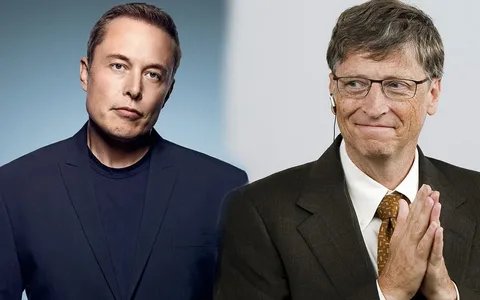The tech world is witnessing a rare and intense standoff between two of its most influential titans: **Bill Gates** and **Elon Musk**. As Artificial Intelligence continues to reshape the world, these billionaire visionaries are taking opposite sides on what the future holds—and how society should prepare for it. The most heated point of contention? Musk’s prediction of a **“jobless future”** where **Universal High Income (UHI)** is the answer, and Gates’ strong **rejection** of that vision.

Their clash is more than philosophical—it has direct implications for **technology policy**, **economic frameworks**, and the future of human labor in the age of intelligent machines. As debates around AI ethics, automation, and labor disruption intensify, the world is paying close attention to what Gates and Musk have to say—and where their sharply different ideologies may lead us.
## Musk’s Warning: A Jobless Future Is Inevitable
Elon Musk, CEO of Tesla, SpaceX, and xAI, has long been vocal about the **existential risks of artificial intelligence**. He’s warned that powerful AI could render most jobs obsolete within decades. In Musk’s own words:

> “AI will be able to do everything better than humans. I mean all of us.”
For years, Musk has pushed the idea that governments should begin preparing for a future where machines outperform humans in almost every cognitive and manual task. His proposed solution? **Universal High Income (UHI)** — a more generous version of Universal Basic Income (UBI) — where every citizen receives a fixed, livable wage, regardless of employment status.
Musk believes this is the only viable safety net in a world dominated by intelligent systems. He’s emphasized the need to **rethink human purpose**, suggesting that creativity, relationships, and leisure could define post-AI human life.
## Gates Pushes Back: “Universal High Income Won’t Work”
But **Bill Gates** isn’t buying it.

In a recent public interview and essay, the Microsoft co-founder responded directly to Musk’s predictions, calling the concept of Universal High Income “**naïve** and economically unrealistic.” According to Gates:
> “A future where AI does all the work sounds appealing to some, but it’s detached from the realities of human need and dignity.”
Gates believes that even in a highly automated world, **people need meaningful work**, not just money. He argues that jobs provide structure, community, and purpose—things that a monthly check cannot replace.
Moreover, Gates points out major **flaws in funding and sustainability** for UHI. He argues that replacing trillions of dollars in salaries with a government-funded income program is “a logistical and economic black hole,” especially in developing countries where social infrastructure is already strained.
## The Economic Argument: Is UHI Even Possible?
Let’s break down both perspectives.
### Elon Musk’s UHI Vision:
– Believes most jobs will be automated by 2040–2050
– Envisions a society where AI and robots handle all productivity
– Proposes Universal High Income as a replacement for labor
– Suggests that productivity gains from AI will create enough wealth to fund UHI
### Bill Gates’ Counterpoints:
– Believes AI will **augment** rather than **eliminate** most jobs
– Predicts major labor shifts, but not full replacement
– Warns that UHI could **disincentivize productivity** and damage economic structure
– Favors a **retraining revolution** and **robot tax** on AI-powered companies
In one of his more controversial ideas, Gates has even proposed taxing companies that replace human workers with machines—arguing that this could fund education and social services to help workers transition.
## Philosophical Divide: What Is the Purpose of Human Life?
At the heart of this billionaire battle is a fundamental disagreement about **what it means to be human** in an AI-dominated world.
For Musk, the future may involve far fewer economic responsibilities for humans—but also much more **freedom**. He envisions a world where people are freed from tedious work and can pursue passion projects, art, relationships, and even space travel. Musk’s optimism lies in AI’s ability to unlock **post-scarcity abundance**.
Gates, however, is more grounded. He argues that work is not just a means of survival—it’s **central to identity and purpose**. He worries that removing the incentive to contribute through meaningful effort could lead to widespread depression, apathy, and societal fragmentation.
## Public Reaction: Whose Vision Do People Believe?
Social media platforms, forums, and opinion polls show a **divided global audience**.
– **Supporters of Musk’s view** tend to be younger, tech-savvy, and more open to radical disruption. They embrace UHI as an inevitable solution to automation and AI-driven inequality.
– **Supporters of Gates’ view** are generally more pragmatic and economically conservative, concerned about inflation, societal engagement, and the moral implications of detaching income from work.
A 2025 Pew Research study revealed that:
– 56% of Americans think AI will significantly reduce jobs in the next 20 years
– 41% support some form of UBI or UHI
– 37% believe retraining and education are better long-term solutions than income guarantees
## Government and Policy Makers Weigh In
This debate is not just academic. As AI advances faster than regulation, **governments are scrambling** to prepare for potential disruption. In the U.S., some lawmakers support limited pilot programs for UBI, especially in cities with high automation rates.
Meanwhile, the European Union has leaned more toward Gates’ approach—pushing AI regulation, workforce training, and ethical development instead of full-blown income replacement schemes.
India, Brazil, and several African nations have publicly stated that **Universal High Income is “unfeasible”**, citing budget constraints and ongoing development priorities.
## Tech Industry Implications: The Stakes Are High
The outcome of this debate could **redefine capitalism** itself. If Musk is right and jobs disappear, we will need to rebuild the economy from the ground up. If Gates is right, the focus should be on **re-skilling** the global workforce to evolve alongside intelligent systems.
Tech companies are already responding:
– Google and Amazon are investing billions in **AI-driven upskilling platforms**
– Meta and OpenAI are funding **ethical AI research** and **digital literacy programs**
– Startups like OpenLoop and Udacity offer **career transition programs** for workers displaced by automation
But despite these efforts, the battle between Gates and Musk continues to **shape the public imagination** of what AI means for the human experience.
## Two Giants, One Uncertain Future
The feud between **Bill Gates and Elon Musk** over the future of AI and labor is more than a media headline—it’s a profound reflection of two competing visions for humanity.
Will AI liberate us from the burdens of work, ushering in a utopian era of creativity and exploration, as Musk imagines?
Or will it require careful regulation, continued human involvement, and a thoughtful approach to economic fairness, as Gates insists?
One thing is clear: the **conversation about AI’s role in society is only just beginning**, and the voices of these two tech giants will continue to influence how governments, businesses, and individuals prepare for a world shaped by intelligent machines.
